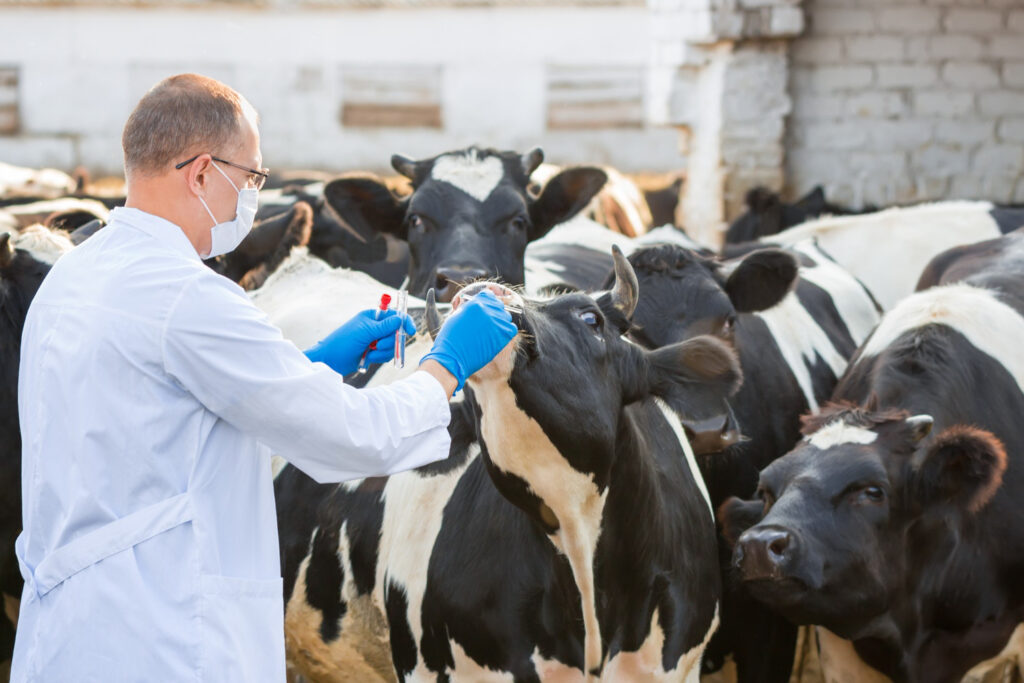Development of a portable and rapid test to detect bovine tuberculosis

Un dispositivo innovador desarrollado por científicos argentinos permite detectar tuberculosis bovina de forma rápida y eficiente.
Argentinian researchers have achieved a significant breakthrough with the creation of a portable and rapid test for the detection of bovine tuberculosis, a disease that affects cattle and causes major economic losses in the livestock sector. This development has the potential to transform the way this disease is diagnosed, improving diagnostic efficiency and accuracy.
Bovine tuberculosis is a chronic bacterial disease caused by the microorganism Mycobacterium bovis, which primarily affects cattle but can also be transmitted to wild animals and humans. The disease is mainly spread through respiratory transmission among animals, although it can also be transmitted by consuming unpasteurized milk. Early detection is essential to prevent the spread and minimize the economic impact of the disease.
Over the years, traditional methods such as the tuberculin skin test and ELISA have been used to diagnose bovine tuberculosis. However, these methods have limitations, including the need for expensive equipment, lengthy processes, and difficulty in obtaining quick and accurate results. For this reason, specialists from CONICET, together with the National University of Río Cuarto (UNRC) and the National University of Villa María (UNVM), have worked on a more accessible and efficient solution: a portable and rapid test.
Innovation in diagnosis: a portable and rapid test
The test developed by the researchers is a portable device based on a printed electrode sensor, which features a polymer layer capable of supporting gold nanoparticles. This sensor is designed to detect specific antibodies in blood samples from cattle infected with Mycobacterium bovis. The operating principle is simple yet highly effective: the electrode captures the antibodies present in the blood sample, generating a change in the electrical properties of the sensor’s surface. Thanks to this variation, the device can detect the presence of antibodies and determine their concentration.
One of the major advantages of this test is its speed. Unlike conventional methods, which can take hours or even days to produce results, the portable test provides answers in a short period of time. This is especially important in the livestock field, where early and rapid detection is essential to prevent the spread of the disease and reduce the risk of economic losses.
Benefits and future prospects of the portable test
The main advantage of this test over traditional technologies is that it is more affordable, portable, and easy to use. It does not require expensive equipment or highly specialized personnel to operate, making it an ideal tool for farmers and veterinarians working in small and medium-sized farms, who do not always have access to more complex methods.
Additionally, the ease of use of the device also implies a lower environmental impact, as its operation requires fewer solvents and polluting materials compared to techniques like ELISA. The accuracy of the test has been verified through trials on bovine serum, demonstrating high sensitivity, stability, and reliability in the detection of tuberculosis.
However, for this technology to become widely accessible, it is crucial to secure support from investors to fund its scaling and mass production. Once this phase is completed, the test could be available on the market, significantly contributing to the control of bovine tuberculosis, improving animal health, and benefiting the livestock sector. Moreover, this innovation could also drive the development of new solutions in other scientific and technological fields, boosting research and economic growth.








